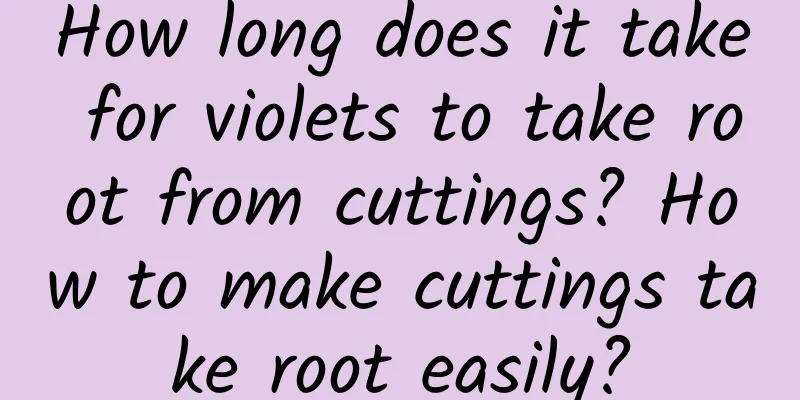How to prune peppers

When to prune peppersPeppers can generally be pruned in late July to early to mid-August when the temperature is high in summer. At this time, the first batch of peppers has been picked and the plants are in the resting stage, so pruning is most effective at this time. How to prune peppersIn the early stages of pepper growth, the main thing to do is to prune off those poorly growing stems and buds. When the plant grows to more than 30 cm, keep a few leaves, cut off the upper part of the plant, top it, and trim off all excess leaves. When pruning peppers, generally keep the main 3-4 branches, and then keep the two strongest side branches on the main branches. The other redundant branches can be directly trimmed off. In particular, some small branches and leaves below the main branches can be completely wiped off during pruning. This can greatly reduce the burden on the pepper tree and allow the absorbed nutrients and produced organic matter to be supplied to the main branches and side branches. Tips for Pruning PeppersWhen pruning peppers, you need to use relatively sharp scissors and ensure that the cut ends are smooth to prevent attracting pests or infection with pathogens. When pruning, cut off diseased branches, drooping branches, and broken branches that are improperly managed. It is best to take the cut branches out of the garden for disposal, especially branches infested by diseases and insects. Pepper pruning makes it grow fasterIf you want peppers to grow faster, you need to cut off the withered and yellow branches and leaves. This will help improve the quality of the peppers, will not cause more and more leaves to turn yellow, and can also promote faster plant growth. Pepper pruning floweringSince peppers have a strong growth ability, if the tops are not pinched, they will grow too fast, which will easily cause the pepper tree to only grow taller but not bloom and bear fruit. Therefore, if you want the peppers to bloom, it is essential to pinch off the tops. Pepper pruning results in more fruitsIf you want peppers to bear more fruits, you should trim the side branches. A pepper plant generally has four large branches, and eight side branches will expand from the four large branches. When the side branches grow up, they will affect the ventilation and light transmission in the field. Cut off these eight side branches to concentrate the fertility on the four large branches, so that the peppers can bear more and larger fruits. Notes on pruning peppersAfter pruning peppers, quick-acting fertilizers and watering should be applied in time to promote plant growth and fruiting. If the soil is dry, topdressing should be combined with watering, otherwise the fertilizer effect will be difficult to exert. In addition, weeds should be removed in time after pruning to prevent and control various diseases and pests. |
<<: How to trim the lucky Buddha's hand
Recommend
Flower name combination
Impatiens camellia Camellia Balsam - It sounds li...
How to plant Liubeili in pots
Prerequisites for planting Liubeili in pots Befor...
Maintenance tips for potted evergreen
Watering Likes moisture. Water more frequently in...
Can the skin of Lithops be torn off? When does it shed?
1. Can the skin of Lithops be torn off? 1. It can...
What flowers should I send for Dragon Boat Festival?
1. Calamus The custom of the Dragon Boat Festival...
What month is suitable for planting lotus root?
When to plant lotus root Lotus roots are generall...
How to grow jasmine
Table of contents 1How to grow jasmine ▪Potting so...
Plane cultivation and care methods
1. Introduction The sycamore is often used as a s...
How to grow banyan trees quickly
1. Appropriate amount of water Too much or too li...
The fastest way to solve pig heat stress
Pigs are warm-blooded animals with thick subcutan...
How to plant figs on the balcony
1. Lighting When growing figs on the balcony, the...
Cutting method of bulbous begonia, cutting propagation steps and rooting method
Begonia bulbosa is a kind of begonia, also known ...
Should you apply fertilizer first, then water, or first apply fertilizer and then water?
In the agricultural sector,...
Soilless Cultivation of Iris flexuosa
Preparation for soilless cultivation of hibiscus ...
Does hibiscus need a large pot or a small pot? What size pot is appropriate?
When you first start planting hibiscus, you will ...









